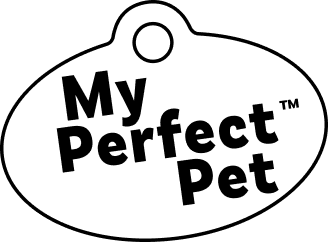Diet & Health
Many health issues can be directly attributed to diet. A complete and balanced diet made with fresh whole foods, without preservatives, fillers, or processed ingredients, provides the foundation for improved overall pet health.
Conditions and Diet
We've listed each health issue below to show how fresh whole food can make a difference.
Eyes - Tearing, staining & swelling
Tearing and staining is often a symptom of allergic reaction to one or more ingredients in their diet. Eliminating processed foods (look for terms like “meals” or “preservative” on the label) often reduces or eliminates the tearing and resulting staining around the eyes.
Ears - Redness, scratching and odor
Redness, scratching and odor may be signs of allergies or imbalances in the diet. A fresh whole food diet with a perfect balance of nutrients and lower carbs can help to alleviate these. Eliminate any ingredients that include the words “meals”, “starch”, “gluten”, or “powder”.
Periodontal Disease - Plaque & tarter, bad breath
Digestion begins in the mouth. While dry food is often lodged in teeth and gums, fresh whole food passes through the mouth more quickly leaving less time to feed bacteria that fuels growth of plaque and tartar. Dry crunchy food doesn’t clean their teeth any better than it cleans ours!

Poor Appetite - Low energy, weight management issues
No pet can resist the aroma or taste of freshly baked meat! Even picky eaters love it! We’ve done thousands of taste tests with dogs, cats, even polar bears and cheetahs, and our food wins every time!
Skin & Coat - Low energy, weight management issues
Scratching, hair loss, rash, red spots
Dull coat, dry skin, and itching are all signs of nutrient deficiencies or imbalance. A fresh whole food diet with a perfect balance of fatty acids and other nutrients will produce a noticeably shinier coat and healthier skin.
Hairballs - Feline gagging & retching
Cats should get at least 80% of their moisture through their diet. Fresh whole food diets are naturally high in moisture and easily digested, allowing stomach contents to pass through more quickly and reducing the time hair remains in the stomach forming into “hairballs”.
Obesity - Contributes to numerous health issues including diabetes
Over 55% of American dogs and cats are considered obese. Obesity leads to a variety of health issues and is 100% controlled by diet. A fresh whole food diet fed according to what they SHOULD weigh will help to take that weight off while still supplying all essential nutrients. Avoid high carb processed foods and “lite” or “low calorie” diets – these are packed with fillers, making their systems work harder to absorb nutrients.
Sensitive Stomach - Odorous gas, loose stools, vomiting
Fresh whole food is far easier to digest than dry, processed food. Muscle and organ meats are the easiest. Processed ingredients like “meals”, brewers rice, corn, etc., are the hardest. The more digestible the food, the less stress on their digestive tract and the easier it is for nutrients to be absorbed.
Anal Glands - Inflammation and infection
For most dogs, anal glands are naturally expressed as firm stools are passed. Fresh whole food tends to produce perfect poop, which aids in the natural expressing of the anal glands. Adding brown rice to the diet is often recommended to increase the fiber in the diet – this is unnecessary if there is sufficient fiber in the diet.
Feet - Licking, redness, hair loss
Constant licking of the feet indicates overall distress and is most often caused by allergies. Eliminating highly processed ingredients and preservatives from the diet often alleviates the itching – avoid ingredients that include “meals”, preservatives, “glutens”, “powders”, “starches”, “colors”, or “flavors”. Fresh whole food diets that are nutritionally complete and perfectly balanced will reduce allergic reaction.
Find the Perfect Blend
Select the right pet food for your dog or cat using our chart, which organizes each blend's nutritional profile by dietary needs and specific health conditions.

